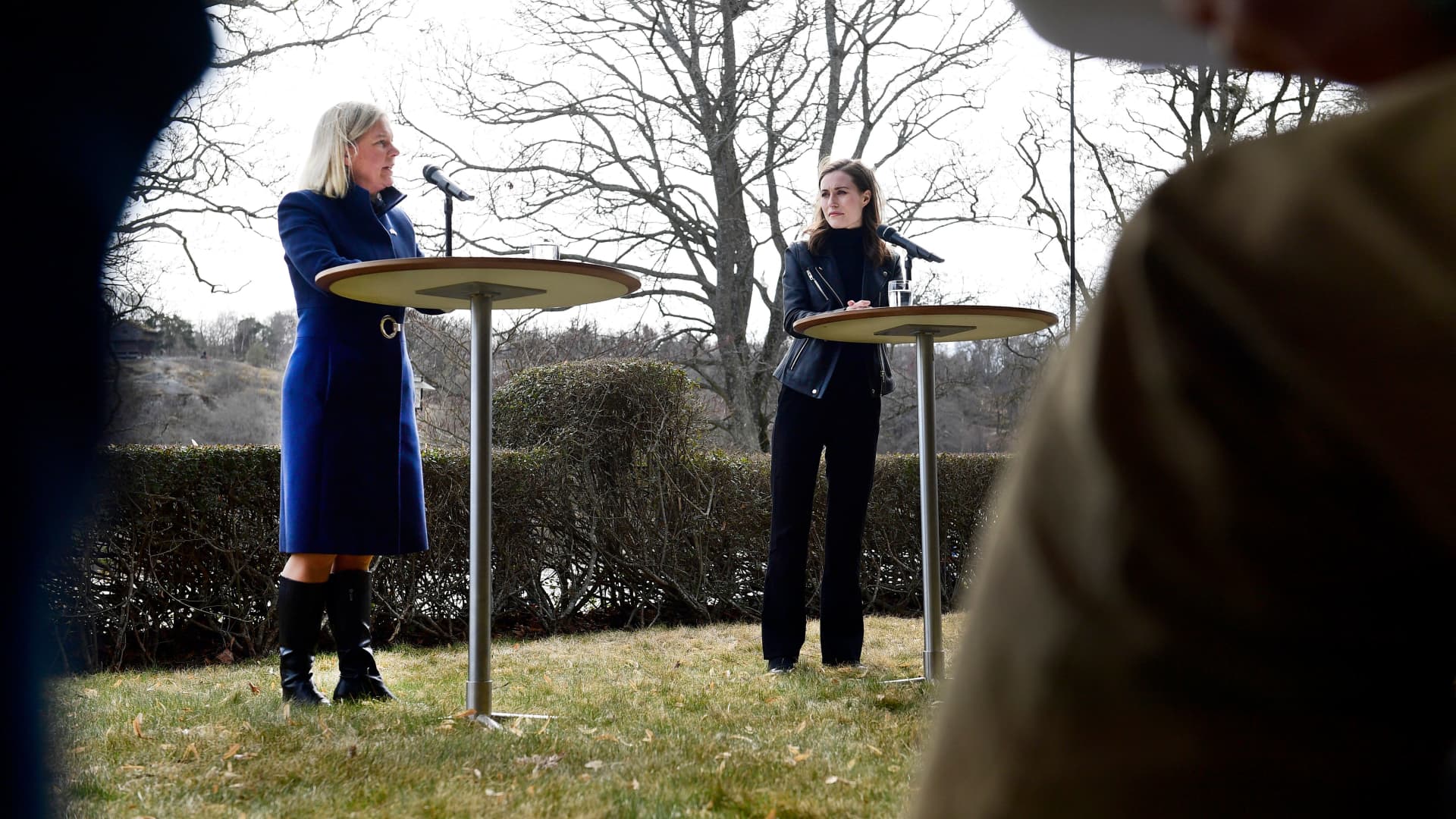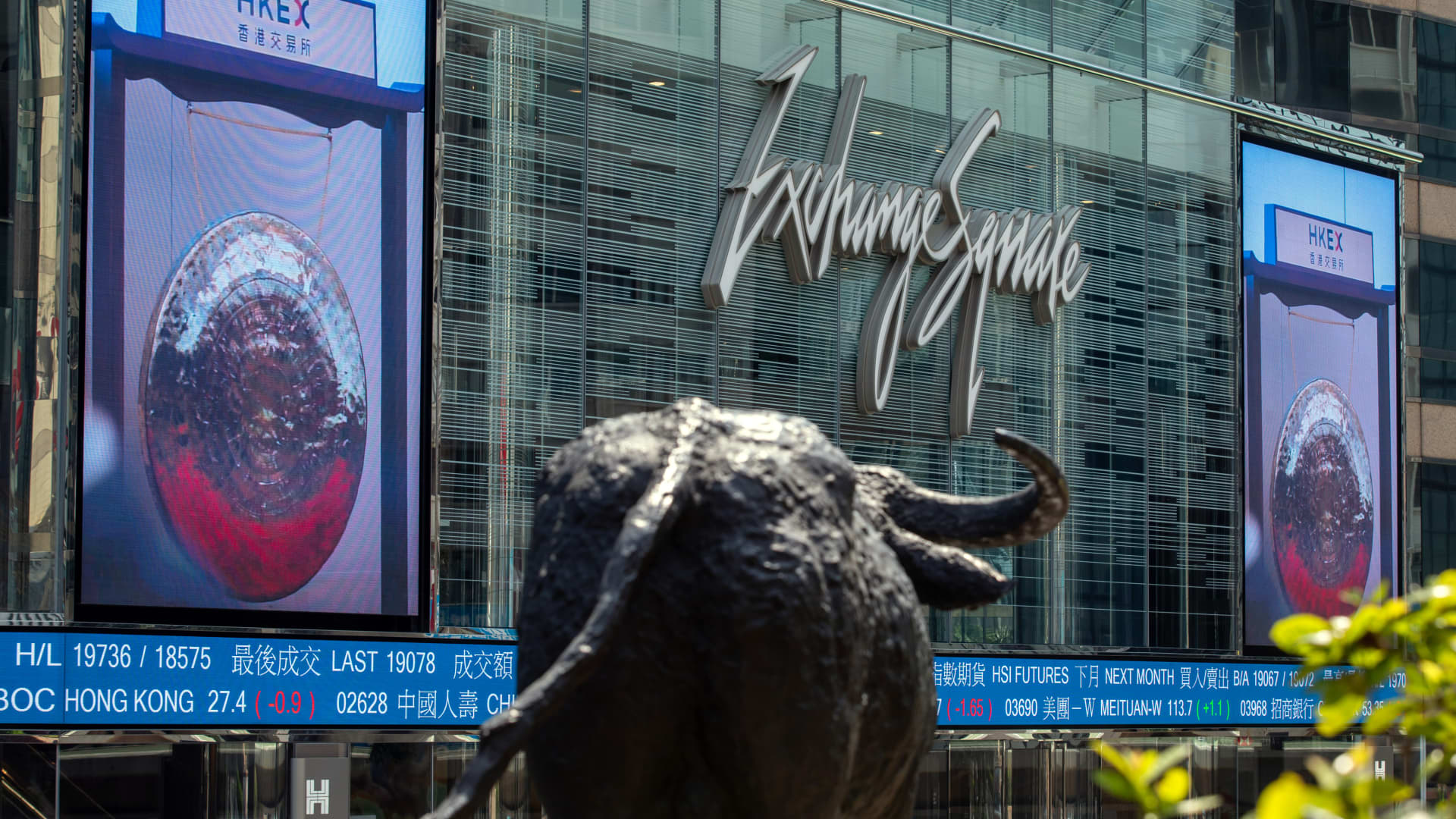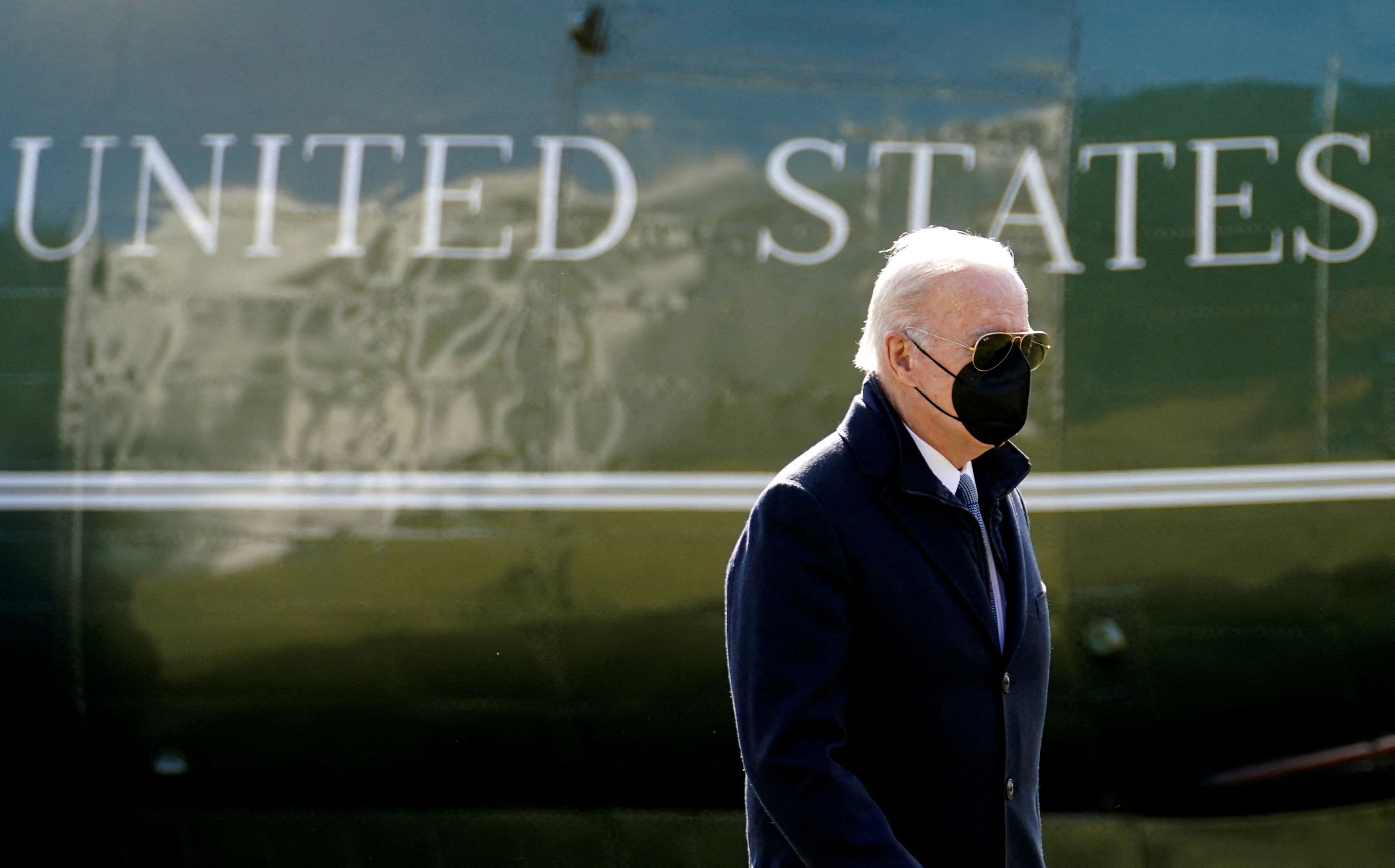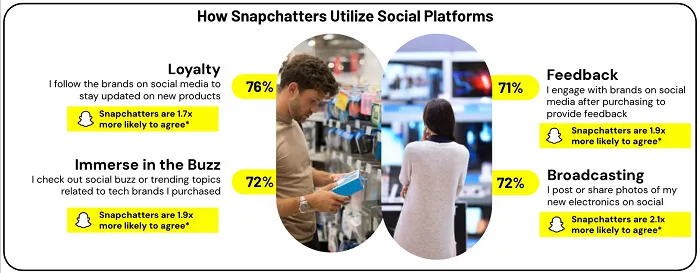Serious crime in the metaverse should be outlawed by the U.N., UAE minister says
New laws should be created to prevent people from committing "murder" in the metaverse, according to the UAE's minister of state for artificial intelligence.

An attendant with the Meta Oculus Quest 2 headset on a virtual reality tour during the Mobile World Congress. South Korea is betting on the metaverse as the next big thing but there are still questions over the shape the industry will take in the coming years.
Joan Cros | Nurphoto | Getty Images
New laws should be created to prevent people from committing crimes such as "murder" in the metaverse, according to the United Arab Emirates' minister of state for artificial intelligence.
The metaverse refers to a virtual world where people can live, work and play via an avatar. It doesn't actually exist yet, but tech companies are investing billions of dollars into developing the technology. There are, however, a number of safety concerns associated with its development.
Speaking at the World Economic Forum in Davos, Switzerland on Wednesday, Omar Sultan Al Olama said the realistic nature of any metaverse that does come to fruition could allow people to be terrorized in ways that aren't currently possible.
"If I send you a text on WhatsApp, it's text right?" Al Olama said. "It might terrorize you but to a certain degree it will not create the memories that you will have PTSD (post-traumatic stress disorder) from it."
"But if I come into the metaverse and it's a realistic world that we're talking about in the future and I actually murder you, and you see it ... it actually takes you to a certain extreme where you need to enforce aggressively across the world because everyone agrees that certain things are unacceptable," he added.
Al Olama urged the International Telecommunication Union, the U.N.'s specialized agency for information and communication technologies, to have a conversation on setting international safety standards for the metaverse that people must adhere to regardless of where they live. For instance, there are common standards on the internet that prevent things like drug trafficking and child pornography.
The ITU was not immediately available to comment when contacted by CNBC.
Passporting from one metaverse platform to another also needs to be possible, Al Olama said. "So if Meta develops something and Magic Leap develops another ... there has to be some sort of interoperability between them."
Speaking on the same panel, Chris Cox, the chief product officer at Meta (formerly Facebook), said the world needs international standards when it comes to the metaverse.
"There will probably be something like a rating system, which we have for film, we have for music, we have for other types of content so that a parent or a young person can have some sense of what the rules are in the environment they're going to walk into," Cox said.
On the topic of monetizing the metaverse, Cox said he expects Meta to generate revenue in the metaverse through ads. "If you want free services at scale, advertising is going to be the natural business model for it just like it has since print," he said.
But Philip Rosedale, the founder of virtual world platform Second Life, said on the same panel that the metaverse should be ad-free. "If we move those (advertising) models, which rely on making predictions about what you want and suggesting things to you, and in some cases, I think, manipulating your behavior ... I think it's a terrible risk," he said.
Rosedale added: "The model that has to work in the metaverse, in my opinion, is a transaction or a fees model rather than an ads model."
This would involve buying digital goods and subscriptions.

 JimMin
JimMin 































